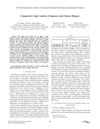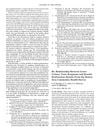
Chinese and Japanese bloggers discuss different topics and have varying opinions, reflecting cultural differences.
 1 citations,
July 1998 in “JAMA”
1 citations,
July 1998 in “JAMA” The book provides a historical view of abortion in the U.S., critiques the pro-choice movement, and recommends including abortion in medical education.
 17 citations,
June 2020 in “British Journal of Dermatology”
17 citations,
June 2020 in “British Journal of Dermatology” Oral mTOR inhibitors often cause skin and hair side effects but usually don't require stopping treatment.
 205 citations,
July 2009 in “Journal of Dermatological Science”
205 citations,
July 2009 in “Journal of Dermatological Science” Male and female skin differ in many ways, which could lead to gender-specific skin treatments.
 152 citations,
January 2004 in “Current anthropology”
152 citations,
January 2004 in “Current anthropology” Humans lost body hair relatively recently in evolution.
 85 citations,
March 2002 in “Body & Society”
85 citations,
March 2002 in “Body & Society” The document concludes that cosmetic surgery is still mainly a practice for women and the gender gap in this field is expected to continue.
 20 citations,
January 2008 in “Reproductive Biomedicine Online”
20 citations,
January 2008 in “Reproductive Biomedicine Online” Sexual orientation does not affect the prevalence of PCOS or fertility rates in women undergoing artificial donor insemination.
 2 citations,
September 2021 in “Curēus”
2 citations,
September 2021 in “Curēus” Tofacitinib may be safe for COVID-19 patients with alopecia without worsening symptoms, based on two cases.
 2 citations,
October 2009 in “The FASEB Journal”
2 citations,
October 2009 in “The FASEB Journal” Stress does not greatly speed up aging or hair loss in politicians.
 98 citations,
July 2011 in “Fertility and Sterility”
98 citations,
July 2011 in “Fertility and Sterility” An mFG score of 5 or more indicates above-normal hair growth in Southern Chinese women.
 16 citations,
December 2010 in “European Journal of Obstetrics & Gynecology and Reproductive Biology”
16 citations,
December 2010 in “European Journal of Obstetrics & Gynecology and Reproductive Biology” Normal levels for certain hormones in Chinese women of reproductive age were identified.
 11 citations,
May 2022 in “Journal of immunology research”
11 citations,
May 2022 in “Journal of immunology research” Breast implants are linked to autoimmune symptoms, with over half of patients feeling better after removal, but the exact cause is unclear and may involve bacterial biofilm.
 11 citations,
October 1980 in “Archives of Dermatology”
11 citations,
October 1980 in “Archives of Dermatology” Beau's lines and hair loss in a patient were linked to severe stress on the body.
 2 citations,
June 2022 in “International Journal of Biomedicine”
2 citations,
June 2022 in “International Journal of Biomedicine” The review suggests a comprehensive approach to treat hirsutism, focusing on hair removal, medication, and managing emotional effects.
 1 citations,
August 2023 in “Cutis”
1 citations,
August 2023 in “Cutis” Low ferritin levels can indicate iron deficiency as a cause of hair loss.
 February 2024 in “International Journal of Health and Pharmaceutical”
February 2024 in “International Journal of Health and Pharmaceutical” Black rice extract ointment significantly promotes hair growth in Wistar rats.
 January 2020 in “Asian journal of applied science and technology”
January 2020 in “Asian journal of applied science and technology” Good nutrition is crucial for health and preventing disease, and supplements can help prevent nutrient deficiencies.
48 citations,
April 2019 in “PloS one” Alopecia areata patients have more Propionibacterium acnes and less Staphylococcus epidermidis on their scalps.
 6 citations,
May 2023 in “Drugs”
6 citations,
May 2023 in “Drugs” Baricitinib helps regrow hair in adults with severe alopecia better than a placebo and is approved for treatment, but long-term effects are still unknown.
November 2013 in “Journal of clinical & experimental dermatology research” The follicular unit extraction method for hair transplants is a technique with benefits and drawbacks.
37 citations,
December 2021 in “Cells” Alopecia areata severity and treatment response are linked to specific cytokine levels.
 3 citations,
January 2019 in “International Journal of Trichology”
3 citations,
January 2019 in “International Journal of Trichology” The article concludes that treating hair loss requires careful research, understanding the causes, and personalized treatment plans.
 June 2005 in “British Journal of Dermatology”
June 2005 in “British Journal of Dermatology” Women find hair loss more distressing than men and often underestimate it, needing more public awareness and professional support.
 21 citations,
November 2018 in “Journal of Psychosomatic Obstetrics & Gynecology”
21 citations,
November 2018 in “Journal of Psychosomatic Obstetrics & Gynecology” Women with PCOS have more emotional and body image issues than healthy women.
 June 2008 in “The Journal of Urology”
June 2008 in “The Journal of Urology” Men with urinary symptoms are more likely to have erectile dysfunction, and there's a debate about research methods and authorship ethics.
 182 citations,
October 2003 in “British Journal of Dermatology”
182 citations,
October 2003 in “British Journal of Dermatology” The 2003 guidelines suggest that while some treatments can regrow hair in alopecia areata, none alter the disease's progression, and wigs may be the best option for extensive hair loss.
 November 1999 in “Australian Psychologist”
November 1999 in “Australian Psychologist” The reviews highlighted practical advice and insights from various psychology and therapy books.
 14 citations,
August 2014 in “Applied Physiology, Nutrition, and Metabolism”
14 citations,
August 2014 in “Applied Physiology, Nutrition, and Metabolism” A low-starch/low-dairy diet may help overweight women with PCOS lose weight and improve metabolism, but more research is needed.
 March 2016 in “West Indian medical journal”
March 2016 in “West Indian medical journal” There is no significant link between alopecia areata and the PON1 enzyme polymorphisms studied.
 218 citations,
April 2012 in “British Journal of Dermatology”
218 citations,
April 2012 in “British Journal of Dermatology” Guidelines suggest various treatments for alopecia areata, but leaving it untreated is also an option as 80% cases may recover on their own.



























